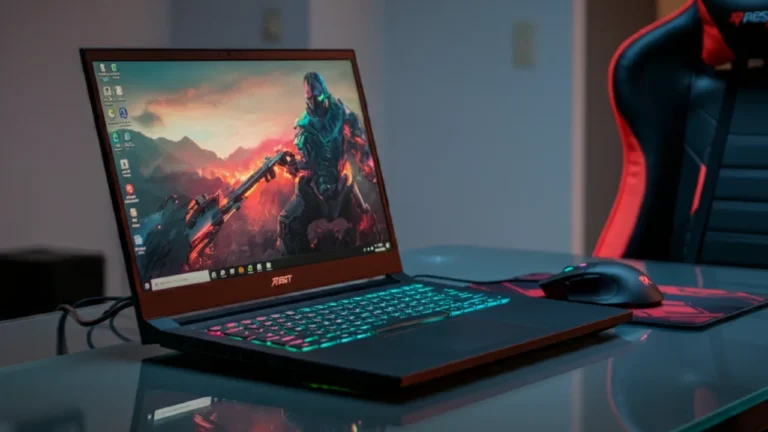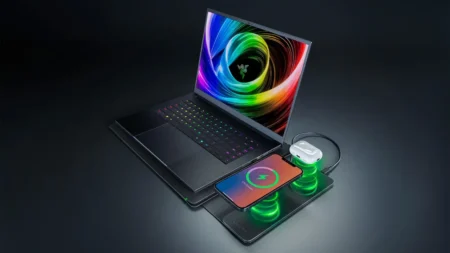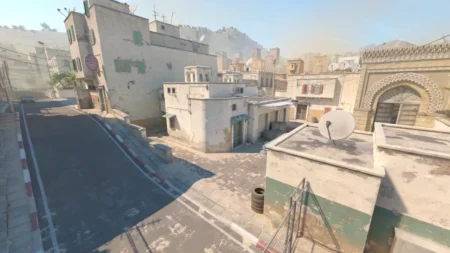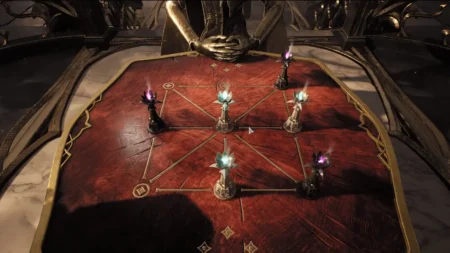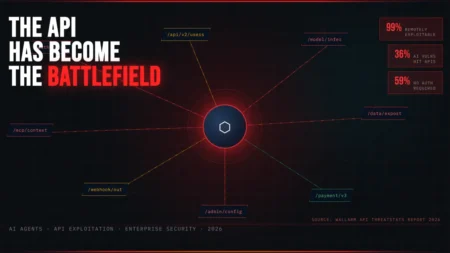So, you’ve decided to go mobile with your gaming? Swapping the chunky desktop setup for something you can fit into a backpack and carry along for gaming sessions from anywhere in the world sounds amazing. However, buying a gaming laptop isn’t exactly as simple as ordering pizza. There’s a lot to consider: from GPU specs to whether or not your future rig for games will fit in your laptop bag. This buying guide explains all the important things you need to consider before you purchase a gaming laptop.
1. Graphics Card (GPU)
The GPU (Graphics Processing Unit) is the number one thing you should consider in a new rig. You can take it as the engine of your virtual Ferrari—it’s what gives you the crisp, beautiful graphics and buttery-smooth gameplay. If your GPU isn’t up to snuff, your game might end up looking more like a PowerPoint presentation on an ancient desktop.
- Entry-Level Options: If you’re okay with playing on medium settings or love indie games rather than AAA blockbusters, the Nvidia RTX 3050 or 3060 will be good enough. They’re perfect if you’re not obsessed with playing Cyberpunk 2077 at max settings or if you think pixel art is life.
- Mid-Range Powerhouses: Step it up a notch, and you get the RTX 4060 or 4070. These are solid choices for playing games like Call of Duty and Fortnite at high settings in 1080p or even 1440p. These cards give you the high-quality graphics that you dream of without needing to explain to your bank why you’ve spent the rent on a laptop.
- High-End Beasts: Want to game in 4K or explore VR worlds without lagging into oblivion? The RTX 4080 or 4090 is the powerhouse. These are the high-end cards for gamers who want every pixel to shine. You can expect some serious damage to your wallet here, but 4K at 120fps isn’t going to be cheap.
Nvidia tends to dominate the high-end market, but AMD’s Radeon RX 7000M series is also worth checking out, especially if you want solid performance on a tighter budget. In short, Nvidia rules the roost, but AMD is a great wingman for gamers who want bang for their buck.
2. Processor (CPU)
While your GPU is the showstopper, the CPU (Central Processing Unit) is the one that does all the behind-the-scenes work. The CPU handles everything from enemy AI to the open-world objects in your games. If you don’t want your system to slow to a crawl every time you open more than one application, consider a machine equipped with a decent processor.
- Intel vs AMD: Both Intel and AMD make excellent processors, so it boils down to personal preference and budget. For Intel, aim for at least an i5 processor, but ideally go for an i7 or i9 if you want to game, stream, and multitask without any trouble. On the AMD side, look for a Ryzen 5 at the minimum or a Ryzen 7 or 9 for more demanding tasks.
- Core Count & Clock Speed: Processors with higher core counts can handle multiple tasks at once, while higher clock speeds ensure faster performance. For gaming, quad-core CPUs are enough, but if you have a mind to video editing or streaming, an eight-core chipset will give you that multitasking power you are after.
Some gaming laptops allow you to overclock the CPU for more power. It’s like giving your laptop a Red Bull—use it wisely, though, because overheating is a real danger.
3. RAM
RAM (Random Access Memory) allows the computer to multitask without breaking down and sobbing in the corner. More memory means more smoothness in your games and everything else. You don’t want your system freezing right when you’re about to land that game-winning headshot.
- Minimum: 8GB RAM is the absolute minimum to have in a gaming laptop. It’ll run most modern games, but don’t expect miracles.
- Sweet Spot: 16GB RAM is what is right for optimal performance. It allows you to run modern AAA games, while also keeping the extra Chrome tabs open without a hitch.
- Go Big: If you’re running resource-heavy applications, such as video editing software alongside your games, or if you plan on streaming while gaming, 32GB RAM is where to set the target.
Many gaming laptops let you upgrade the RAM, so if 16GB isn’t in your budget right now, you can always expand it later. Just make sure the laptop has extra slots.
4. Storage
Gone are the days when HDD (Hard Disk Drive) was king. Today, it’s all about SSDs (Solid State Drives), which are much faster and more reliable. You don’t want to sit there for minutes waiting for Red Dead Redemption 2 to load, right?
You must get a laptop with an SSD as its primary storage. It’ll boot up your system faster, load games quicker, and reduce in-game lag. NVMe SSDs are way faster than SATA SSDs, so it will be icing on the cake to have one. For a tight budget, you can even choose a laptop with both an SSD and an HDD combo. The SSD will handle system files and games, while the larger, cheaper HDD will be used for all other drives to store all your random files, music, and those 200 screenshots of your Assassin’s Creed: Valhalla kills.
Aim for at least 512GB of SSD storage, but 1TB is even better if you have the budget for it—games are getting bigger in size every year. If you think storage might become an issue, look for models with expandable storage options.
5. Display
The display is where the real visual magic happens, but not all displays are created equal. Sure, resolution matters, but so do refresh rates and screen size. Pick the wrong combo, and you might end up regretting it when everything looks blurry or your screen starts lagging.
- Resolution: For most gamers, 1080p (Full HD) is more than enough. But if you plan on doing any creative work or want the crispness, consider 1440p or even 4K. Just know that higher resolutions demand a more powerful GPU.
- Refresh Rate: This is crucial for fast-paced games FPS shooters. A 60Hz refresh rate is standard, but try to go for 120Hz, 144Hz, or even higher (240Hz or 360Hz). The higher the refresh rate, the better it is, especially for competitive gaming.
- Screen Size: Larger screens (17 inches or more) provide a better watching experience, but these rigs also carry more weight due to their bigger sizes. If portability is key for you, a 14 or 15-inch laptop might be a better choice.
Look for a #laptop that supports Nvidia G-Sync or AMD FreeSync. These technologies sync the display’s refresh rate with your GPU’s output, preventing screen tearing and ensuring a nice gaming session.
6. Keyboard
The keyboard is a gaming laptop’s most underappreciated hero. When you’re in the thick of battle, you want responsive, tactile keys that don’t feel like you’re typing on mashed potatoes.
Look for keyboards with at least 1.5mm to 2mm of key travel. This gives you a satisfying “click” without bottoming out on the frame. Further, you must choose a machine with a mechanical keyboard. These are usually only found on higher-end models, but they’re a game-changer with more precision and speed. If you love the sound of loud clicks and ultimate key feedback, this is for you.
Gaming isn’t the same without a little pizzazz. RGB lighting is not just for aesthetics; it can help you see your keys in the dark and even customize lighting zones for different games. Some high-end models even let you adjust the colors on a per-key basis.
Look for keyboards that come with anti-ghosting and n-key rollover features. These ensure that every key press registers, even if you’re spamming multiple buttons during an intense combo in Street Fighter.
7. Cooling
Gaming laptops get HOT, and I’m not talking about the “good kind” of hot. Without proper cooling, your laptop will throttle performance to prevent overheating, which means lower frame rates and potentially a shorter lifespan for your system.
- Fan System: Make sure your laptop has a solid cooling system with multiple fans and large vents. More fans = better airflow.
- Cooling Pads: If you’re serious about extended gaming sessions, invest in an external cooling pad. These are relatively cheap and can lower your laptop’s temperature by several degrees.
Higher-end GPUs and CPUs generate more heat, so a laptop’s cooling system must be up to the task. Look at the TDP rating of the processor/card to understand how much heat they produce.
8. Battery Life
Here’s the harsh truth: gaming laptops aren’t known for long-lasting batteries. Most barely last 2-4 hours when running games and performance also drops a lot if it’s not plugged in.
- Power Priority: Always prioritize performance over battery life. You’re buying this laptop to game, not write a novel at a coffee shop. Plug it in for maximum performance and to save your gaming laptop battery’s health.
- Battery Tech: Some newer gaming rigs feature switchable graphics (MUX switch), allowing you to switch between integrated graphics for regular tasks and the dedicated GPU for gaming. It helps extend battery life during lighter tasks.
Some laptops can be charged via USB-C, but don’t expect it to fuel your gaming needs. It’s a nice backup option for light tasks but not for gaming marathons.
9. Portability
Gaming laptops can range from sleek, lightweight models to heavy, clunky beasts that kind of feel like you’re carrying a small PC tower. If portability is key, look for models that are slim and lightweight, like those in the ASUS Zephyrus line or Razer Blade series.
A lightweight laptop is great for portability, but make sure it’s built tough enough to survive the rigors of everyday life. Aluminum chassis > plastic for durability.
10. Price
Finally, we come to the moment where dreams meet reality: your budget. Gaming laptops aren’t cheap, and you often get what you pay for.
- Budget ($800 – $1,200): Basic models with decent specs. You’ll get an RTX 3050 or 3060 GPU, a mid-range CPU, and probably 8GB of RAM, but you might have to compromise on display resolution or storage space.
- Mid-Range ($1,200 – $2,000): It is a sweet spot for most gamers. Expect an RTX 4060 or 4070, 16GB of RAM, and a better display with high refresh rates. These models are great for both performance and future-proofing.
- High-End ($2,000+): Sky’s the limit here. You can find the units with RTX 4080/4090, 32GB RAM, and storage space you’d struggle to fill. These laptops will tackle anything you throw at them, from 4K gaming to media editing and more.
Buying a gaming laptop is almost as challenging as encountering a tough boss battle in the Elden Ring, but with the right specs, you’ll be ready to play and dominate in any modern game. Remember: prioritize the GPU and CPU, don’t cheap out on storage, and make sure the display and keyboard suit your gaming style.


